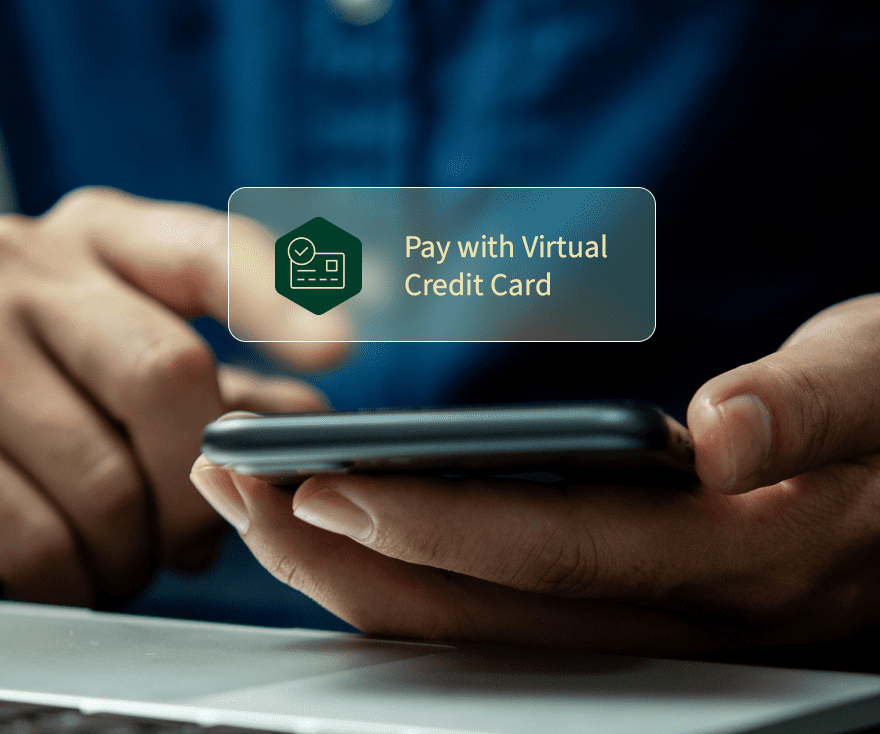
All About Virtual Credit Cards (VCC) and B2B Transactions

From personal to professional life, technology is a core component of day-to-day activities for so many people. Considering the professional realm of technology, virtual credit cards and virtual payments have become an important piece of technology in business-to-business (B2B) transactions. Accounts payables platforms like CPX, powered by Priority, enhance efficiency as an additional component of virtual credit card (VCC) payment processing.
Understanding Virtual Credit Cards
Before we get into any of the specifics, let’s discuss what a virtual credit card is and what it’s intended to do. A virtual credit card is a digital payment method that functions similarly to a traditional credit card but without the physical card. It consists of a randomly generated 16-digit number, expiration date and security code, which can be used for online or over-the-phone transactions.
This functionality is particularly useful in B2B settings when a buyer is working with a new supplier to whom they’re apprehensive to provide their primary card information. Buyers can easily generate a virtual credit card within their accounts payables platform, linking it directly to their primary corporate bank account. The buyer can then specify spend limits and transaction types for the card, ultimately mitigating a great deal of risk in the process.
Virtual credit cards offer enhanced security, reduced fraud risk and greater flexibility for businesses, making them an appealing alternative to conventional payment methods. Transactions with virtual cards have added a level of ease to B2B transactions.
VCC Benefits for B2B Businesses
Improved Security:
One of the most significant advantages of virtual credit cards for B2B transactions is enhanced security. Traditional corporate credit cards can be susceptible to fraud and data breaches – but virtual cards diminish these risks. Each virtual card transaction generates a unique token. Doing so prevents unauthorized users from making additional charges, ensuring that sensitive payment information remains protected.
Streamlined Payments:
Virtual credit cards streamline the accounts payables process for businesses. They enable seamless and automated payments to suppliers, contractors and vendors. By using virtual cards, businesses can avoid the complexities of paper-based processes and reduce the chances of errors, late payments or double charges.
Enhanced Control and Spending Limits:
B2B transactions often involve larger sums of money, which can lead to financial concerns and overall the need for tighter financial control. Virtual cards allow businesses to set spending limits on each card, restrict usage to specific merchants, or even establish single-use virtual cards for a particular transaction. All in all, it offers unparalleled control over expenditures.
Easy Reconciliation and Reporting:
Virtual credit card transactions are typically linked to a centralized platform, allowing businesses to monitor expenses in real-time. This feature simplifies the reconciliation process and provides a comprehensive overview of all transactions – making tracking expenses and managing budgets straightforward and merely effortless.
Cost Savings:
By reducing the likelihood of fraud and simplifying payment processes, virtual cards can lead to cost savings for businesses. The average cost to process a traditional check can be up to $84, so the elimination of paper-based payments and associated administrative tasks reduces costs and increases savings for businesses.

Considerations
Supplier Acceptance:
As a result of the pandemic, almost all businesses have made the transition to accepting virtual payments if they hadn’t already. However, businesses should still ensure that their partners are willing and able to adopt this payment method to reap the full benefits.
Integration with Existing Systems:
Considering how a virtual card may integrate with other platforms you rely on is crucial. Having seamless integration ensures that this addition will truly strengthen business operations. Finding the right system may take time, but will be worthwhile in the end.
Employee Training:
Investing in an employee’s knowledge and skill set is a valuable asset to any organization. Businesses may find it worthwhile to invest in comprehensive training programs. Raising awareness about potential risks can help prevent accidental security breaches.
B2B Virtual Payment Processing and CPX
There’s a lot to consider when endorsing virtual payment transactions. Before making your decision, there is one more element to consider. Virtual payment technology platforms.
Protecting virtual payments in B2B transactions is crucial. Virtual payments with CPX ensure your organization’s transactions are processed safely and securely.
CPX integrates with your existing ERP and bank account to directly process virtual payments from buyers to suppliers. It not only streamlines and saves money on payments, but also empowers your business to overcome obstacles.
Virtual card processing platforms like CPX are designed to take away any transaction stresses and streamline the payments process. Consider how your organization may benefit from enhancing your system processing, maximizing efficiency, monetizing payments and reducing costs all from one processor.
Lets Recap
Virtual cards are a game-changer for the B2B sector. Enhanced security, streamlined payments, and greater financial control are only a few benefits. With careful planning, ongoing education, and proper partnerships, virtual credit cards can pave the way for a more secure and efficient future in B2B payment processes.
Looking into streamlining your B2B payments with virtual cards? CPX has a lot to offer. To learn more about our product click here!










